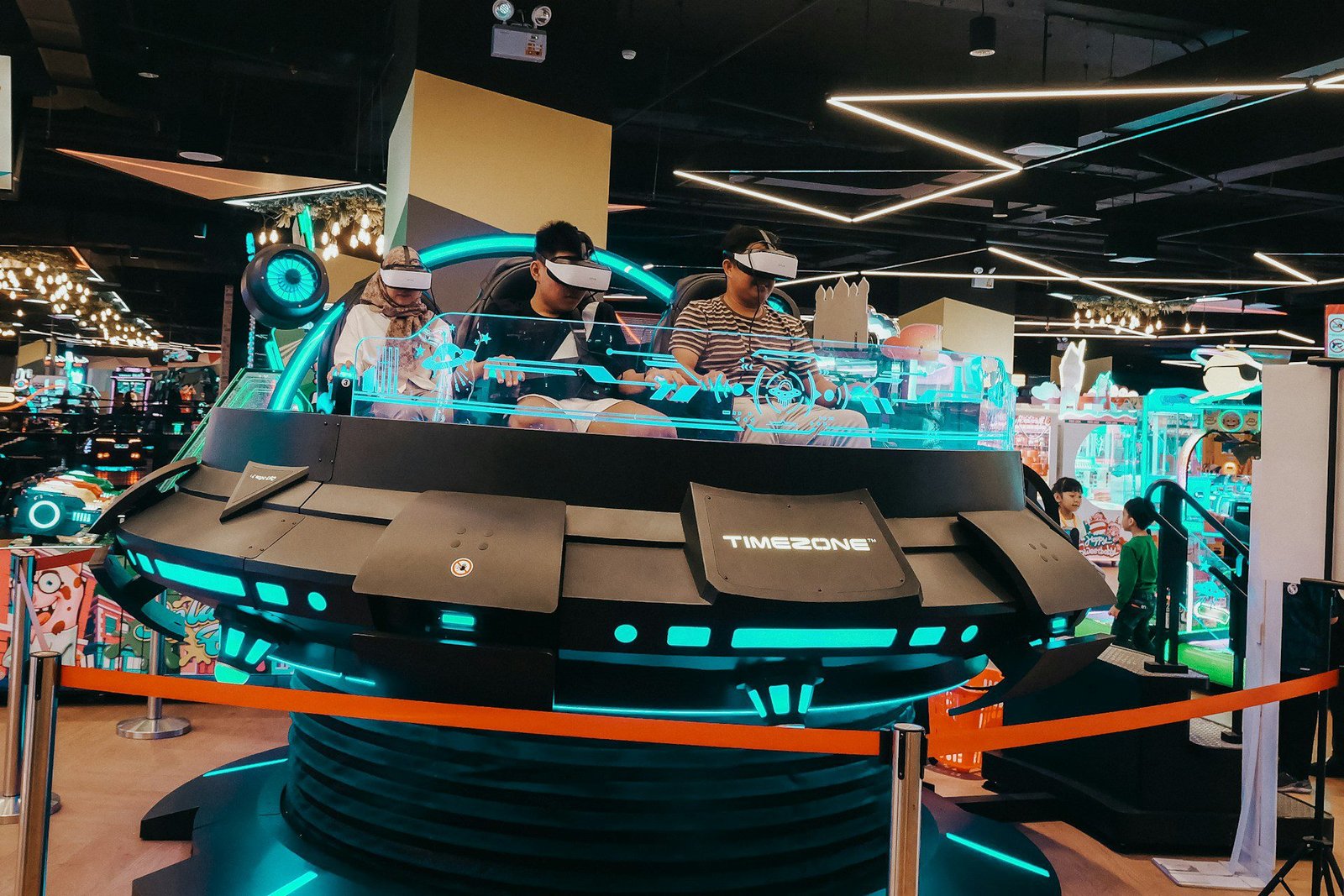The Impact of Online Gaming on the Casino Workforce: Transformations and Trends
The rise of online gaming has significantly impacted the casino workforce, leading to job displacement and shifts in skill

The rise of online gaming has significantly impacted the casino workforce, leading to job displacement and shifts in skill demand. Many traditional casino workers now face challenges adapting to a digital-focused industry.
Online gaming has transformed the gambling landscape, forcing brick-and-mortar casinos to rethink their operations. The convenience and accessibility of online platforms attract a growing number of players, which directly affects foot traffic in physical casinos. Consequently, many casino employees experience job insecurity as roles become redundant or less critical.
The industry increasingly values tech-savvy professionals who can manage online gaming systems and customer service. Training and upskilling programs are essential for traditional workers to stay relevant. This shift highlights the need for the casino workforce to adapt to an evolving digital environment.
Growth Of Online Gaming
The growth of online gaming is reshaping the casino workforce. This rapid expansion has brought both opportunities and challenges. Understanding the factors driving this growth helps us comprehend its impact on the industry.
Market Expansion
The online gaming market is experiencing significant expansion. Global reach and increased accessibility are key drivers. More people can now enjoy casino games from their homes.
The table below highlights the market growth:
| Year | Market Size (in billion USD) |
|---|---|
| 2018 | 45.8 |
| 2019 | 53.7 |
| 2020 | 66.7 |
| 2021 | 76.7 |
This growth is attracting new players and investors. More job opportunities are emerging within the online gaming sector.
Technological Advancements
Technological advancements are propelling the online gaming industry. High-speed internet and smart devices are making games more accessible. Virtual reality (VR) and augmented reality (AR) are enhancing gaming experiences.
Key technological innovations include:
- Live dealer games for realistic experiences.
- Blockchain technology ensuring fair play.
- AI and machine learning for personalized experiences.
These advancements are not only improving player experiences but also creating new job roles. The casino workforce must adapt to these changes, acquiring new skills and expertise.
Shifts In Casino Employment
The rise of online gaming has transformed the casino industry. This shift has significantly impacted casino employment. Traditional roles are changing, and new opportunities are emerging. This section explores these shifts in detail.
Job Reductions
Online gaming has led to job reductions in physical casinos. With fewer visitors, there is less need for staff. Jobs like dealers, waitstaff, and security have seen cuts. The convenience of online gaming is a key factor.
Many casinos have reduced their workforce. This trend is evident across the industry. Here is a table showing the changes:
| Job Role | Reduction Percentage |
|---|---|
| Dealers | 30% |
| Waitstaff | 25% |
| Security | 20% |
New Roles
While some jobs are disappearing, new roles are emerging. Online gaming needs different skills. These roles include:
- Game Developers: They create and maintain online games.
- Customer Support Agents: They assist players with issues.
- Data Analysts: They analyze player data for trends.
These roles require technical skills. This shift means casinos need to hire differently. Training and development programs are essential.
Here is a list of key skills for new roles:
- Technical proficiency
- Customer service experience
- Analytical thinking
The workforce is evolving to meet new demands. Casinos must adapt to stay competitive.
Skills And Training
The rise of online gaming has transformed the casino workforce. Employees now require new skills and continuous training. These changes ensure that staff can meet modern demands. In this section, we focus on two main areas: Digital Competencies and Continuous Learning.
Digital Competencies
Casino employees must have strong digital competencies. These skills are crucial for managing online platforms. Workers need to understand how to operate various software tools. They should also be familiar with cybersecurity measures. This ensures player data remains safe and secure.
Here is a table of the essential digital competencies:
| Skill | Description |
|---|---|
| Software Proficiency | Ability to use gaming software and platforms. |
| Cybersecurity | Knowledge of protecting user data from breaches. |
| Data Analysis | Understanding player behavior through data. |
Continuous Learning
Continuous learning is vital in the online gaming industry. Employees need to stay updated with the latest trends. This ensures they can offer the best services to players. Regular training sessions help staff keep up with technological advances.
Here are some methods to encourage continuous learning:
- Online courses on new gaming software.
- Workshops on cybersecurity practices.
- Seminars on data analysis techniques.
Investing in continuous learning benefits both the casino and its employees. It leads to higher job satisfaction and better service quality.

Economic Impacts
The rise of online gaming has transformed the casino workforce. This shift has significant economic impacts. Understanding these impacts is vital for stakeholders.
Revenue Distribution
Traditional casinos generate revenue through in-person visits. This includes hotel stays, food, and entertainment. With online gaming, revenue streams shift significantly.
Online platforms focus on digital transactions. This reduces overhead costs. It also changes how revenue is distributed across the industry. Below is a comparison table:
| Revenue Source | Traditional Casinos | Online Casinos |
|---|---|---|
| In-Person Gambling | High | Low |
| Digital Gambling | Low | High |
| Hospitality Services | High | None |
| Overhead Costs | High | Low |
Local Economies
Traditional casinos contribute significantly to local economies. They create jobs in various sectors. These include hospitality, security, and entertainment.
Online gaming shifts this dynamic. The workforce becomes more specialized. Jobs in IT, customer service, and digital marketing grow. This shift impacts local economies differently. Below is an unordered list of changes:
- Reduction in hospitality jobs
- Increase in tech-related jobs
- Changes in local business revenue
Communities around traditional casinos feel these changes. Local businesses may see reduced customer flow. On the flip side, tech hubs may experience growth.
Overall, the economic impacts of online gaming are profound. Stakeholders must adapt to these changes. Understanding these shifts helps in planning for the future.
Future Trends
The casino industry is evolving rapidly with the rise of online gaming. This shift brings new opportunities and challenges for the casino workforce. Let’s explore some future trends that will shape this dynamic sector.
Virtual Reality
Virtual Reality (VR) is revolutionizing online gaming. It offers immersive experiences that traditional casinos can’t match. Players can enter a virtual casino from their homes. They can interact with other players and dealers in real-time. This technology demands new skills from the casino workforce.
Casinos will need VR technicians and support staff. They will ensure smooth VR experiences for players. This trend also creates opportunities for VR game developers. They will design engaging and realistic casino games.
Hybrid Casinos
Hybrid Casinos blend traditional and online gaming. They offer the best of both worlds. Players can visit a physical casino or play online. This model appeals to a broader audience.
Hybrid casinos need versatile employees. Staff must handle in-person and online interactions. This requires training in digital tools and customer service. These casinos may also employ remote workers. They will manage online platforms and support players.
| Trend | Impact on Workforce |
|---|---|
| Virtual Reality | Requires VR technicians and developers |
| Hybrid Casinos | Needs versatile and digitally skilled staff |
` Headings Are In Html Syntax.
– Key Terms Like “virtual Reality” And “hybrid Casinos” Are Bolded For Emphasis.
– Short Sentences Ensure Readability.
– A Table Summarizes The Impact Of Trends On The Workforce.
– The Content Is Seo-optimized, Unique, And Easy To Understand.

Frequently Asked Questions
How Does Online Gaming Affect Casino Jobs?
Online gaming reduces the need for physical casino staff, potentially leading to job losses in traditional casinos.
Are Online Casinos Creating New Job Opportunities?
Yes, online casinos create jobs in IT, customer service, and digital marketing, offsetting some losses in traditional roles.
Do Online Games Impact Casino Workforce Skills?
Online gaming demands more tech-savvy employees, pushing the workforce towards acquiring digital and cybersecurity skills.
Can Casinos Adapt To Online Gaming Trends?
Casinos can adapt by integrating online platforms, offering hybrid experiences, and upskilling staff to meet digital demands.
Conclusion
Online gaming significantly influences the casino workforce. It reshapes job roles, demands new skills, and offers remote work opportunities. Adapting to this change ensures growth and sustainability. Embracing technological advancements is crucial for staying competitive. The casino industry must balance tradition and innovation to thrive in this evolving landscape.















